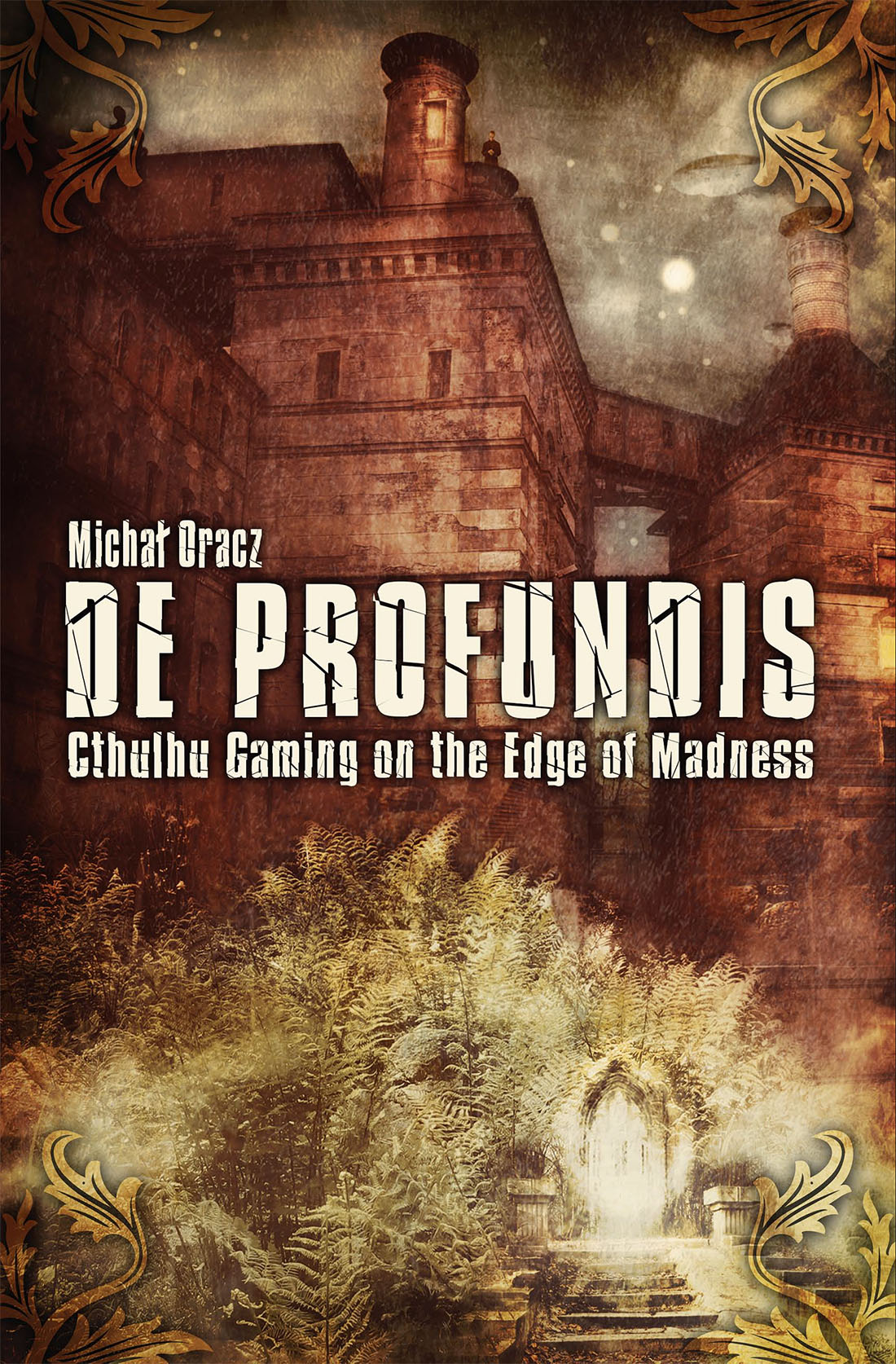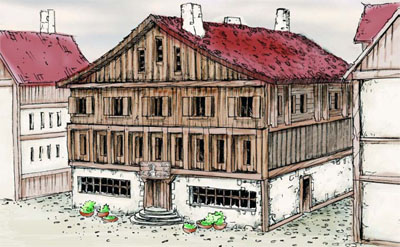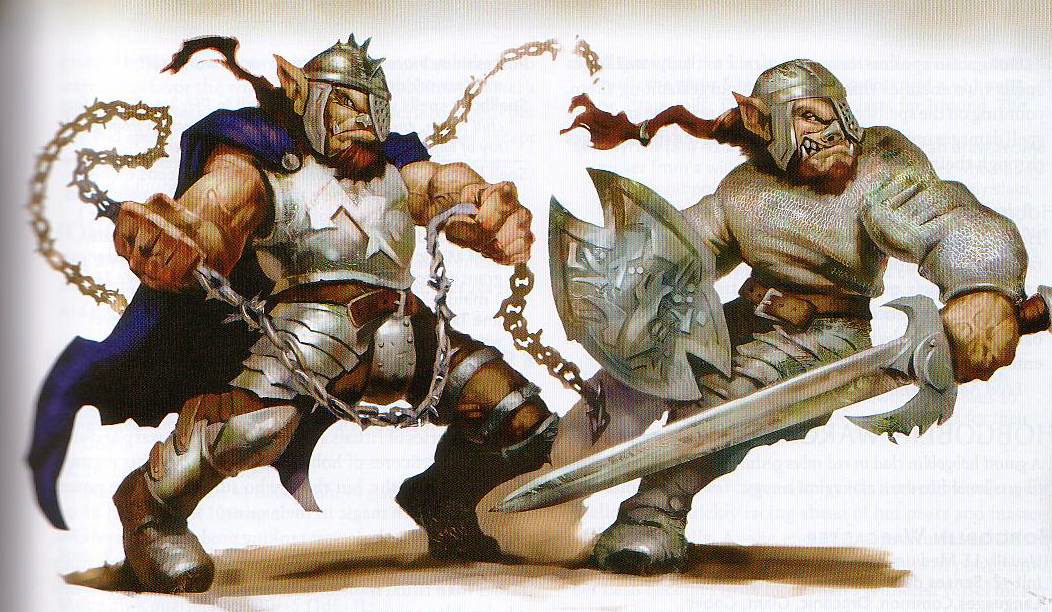IN THE SHADOW OF THE SPIRE
Harvesttime – Part 1: Tor at the Tourney Fields
The next day, despite the weariness with which they had collapsed, they all awoke bright and early – looking forward to the festivals of Harvesttime and a day of rest and relaxation before attending the party at Castle Shard that evening.
I’ve previously discussed my personal background when it comes to general PBeM gaming, but dedicated PBeM gaming is not the only way to take advantage of the medium. Running PBeM sessions for some or all of the players between regular face-to-face sessions of a campaign is a technique which I really love in theory. Unfortunately, I rarely do it. And even when I attempt it, it never seems to quite work out right. (You can see that here, actually, with Agnarr and Elestra basically doing nothing because their players just didn’t reply to the e-mails.)
Let’s back up for a second.
BLUEBOOKING
Inter-sessional play-by-email is a form of bluebooking. Back in 1988, Aaron Allston’s Strike Force campaign supplement for Champions was a revolutionary text, describing techniques for running and playing RPGs that transformed the games of those who read it. (It was also, sadly, an incredibly obscure text.) One of the unique techniques he described was  “bluebooking”, named after the semi-disposable exam books.
“bluebooking”, named after the semi-disposable exam books.
Bluebooking grew out of what Allston referred to as “paranoia notes”. (When the GM passes a player a scrap of paper or vice versa in order to keep their communication secret from the other players. They’re “paranoia” notes because that’s what they create.) Rather than using scraps of paper, Allston’s group would pass notepads around. And then something interesting happened: The players started passing the notepads to each other, using them to develop privately roleplayed side-scenes. They also started to use the pads for in-character journaling, developing character histories, and the like. The pads were then replaced with the blue books which, to my understanding, allowed specific books to be dedicated to particular characters, interactions, etc.
Eventually, whole game sessions were occasionally given over to blue-booking. In these sessions, the players put their characters through solo activities, or conversations with one another, which pertain to their ongoing stories. One player will write with the GM concerning his investigations; one will be conducting a romance with an NPC; one will be vacationing in Greece; another may actually be conducting a whole solo adventure with the GM.
Allston identified three specific advantages to bluebooking:
- Privacy (for obvious reasons)
- Permanence (the exam books provide an organized record of what occurred)
- Breakdown of Inhibition
The last of these is particularly interesting:
It’s hard to conduct some game activities during active play. For instance, a male GM playing a female NPC who’s having a passionate affair with a male PC may have a tough time uttering the lines of high romance in a roomful of gamers. But while blue-booking the dialogue, the GM can be detached enough to write the NPCs’ lines as he wishes her to say them, can take the time to make sure the dialogue he’s writing isn’t clumsy or inane, and can give the player-character a more satisfying subplot.
I think you can actually broaden this to a more general category of Exploring the Unusual by allowing you to play through moments and topics that you can’t (or won’t) explore at the table. That can be stuff that the group finds uncomfortable (like intense romance for some groups), but it can also just be stuff that people aren’t interested in. It might even be stuff that you’re not interested in exploring outside of your blue book. (For example: What does a typical day in the life of your character look like? That might be really boring to play out moment-by-moment, but really interesting for you to explore interactively.)
To Allston’s list of advantages, I would also personally add two more:
Thoughtful Consideration. Bluebooking allows you to create at a different pace than the immediate demand of live improvisation. It gives you a chance to get your character “right” in a way that doesn’t always happen in the organic, real-time flow of the table. This allows you to explore your character – and their life – in different ways. Not just in terms of your ability to think about what you’re creating, but also the depth with which you are developing your ideas: How does your character think? What are their childhood memories? Who’s important to them in their personal life and why?
In addition to the immediate creative pleasure of this sort of thing, what I find interesting is the ability for this development to feed back into and inform the live improv of the character going forward.
In this session, for example, you might notice that the PCs’ dialogue has suddenly taken on a different feel from previous journal entries. That’s because the players are – consciously or otherwise – exploring how their characters talk in a way that they haven’t before. Some of that  (like Tee’s awkward, undefined fear and struggle with feeling like an adult amongst her childhood friends) sticks; some of it (like Tor’s relatively heavy accent) doesn’t. And that’s okay. That’s how creativity works; that’s how ideas grow.
(like Tee’s awkward, undefined fear and struggle with feeling like an adult amongst her childhood friends) sticks; some of it (like Tor’s relatively heavy accent) doesn’t. And that’s okay. That’s how creativity works; that’s how ideas grow.
(Bluebooking will also inevitably display some of the stilted traits of amateur fiction. That’s okay, too.)
This isn’t just useful for the players, of course. The GM also benefits from being able to give thoughtful consideration to a PC’s actions. This makes bluebooking particularly useful for complex or uncertain situations where the GM isn’t sure how or what to prep; improvising in slow motion lets the GM respond truthfully without compromising quality, depth, or long-term planning.
Opportunistic Play. The ubiquitous availability of e-mail and other forms of digital communication mean that, unlike for most people in 1988 when Allston wrote Strike Force, you don’t have to be in the same room to bluebook with other people. This means that bluebooking also allows you to continue roleplaying – to continue developing and experiencing the campaign – even when you’re not in a session.
That’s what was happening in this “session”, for example: I was working in a temp job with a lot of dead time, so I was able to swap e-mails with people on the boss’ dime. I don’t actually remember why we did it; what prompted us to explore the daylight hours of Harvesttime via e-mail. It certainly wasn’t something we made a habit of. (We’d already had mixed results attempting something similar at the beginning of the campaign, and my one other attempt to do this within the context of the Ptolus campaign to date –what was supposed to be an opportunity to roleplay through Tithenmamiwen’s birthday party – ended up being such a non-starter that we ended up retconning the entire event out of the campaign.)
ADDITIONAL THOUGHTS
For those who aren’t interested in full-blown bluebooking (or who, like me, struggle with making it work or getting their players to buy in), a more limited variant that can be very useful –  particularly for certain eras of gaming – is in-character correspondence. I often do this with my Cthulhu-related gaming, as the deeper psychological exploration it encourages feeds nicely into Mythos-inspired insanity and it can also be a lovely way of thinking more deeply about historical milieus.
particularly for certain eras of gaming – is in-character correspondence. I often do this with my Cthulhu-related gaming, as the deeper psychological exploration it encourages feeds nicely into Mythos-inspired insanity and it can also be a lovely way of thinking more deeply about historical milieus.
On that note, I recommend checking out Michael Oracz’s De Profundis (which I am excited to have just discovered – having thought it long out of print – is currently available in an expanded second edition from Cubicle 7). It’s a “game” in which each player takes on the role of a particular character experiencing some Mythos-related oddity and then corresponds with the other players, developing that idea over time. It’s not really a game, serving as more of a structured activity, but it’s a rich and insightful text that I’ve found useful as a general resource for correspondence roleplay.
I also remain intrigued by Monte Cook’s upcoming Invisible Sun roleplaying game, which is supposed to be designed to specifically encourage and support bluebooking between sessions.

















